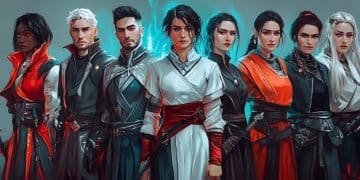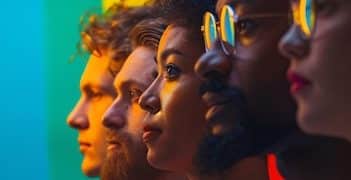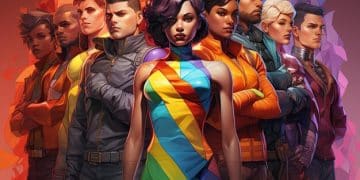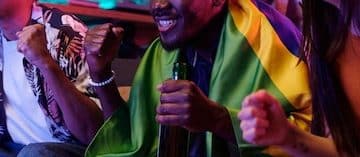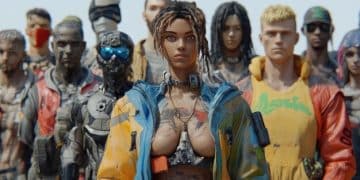League of Legends Champion Genders & Sexualities: Representation in 2025
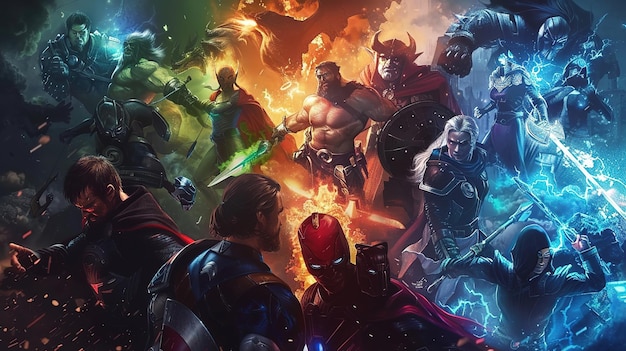
League of Legends Champion Genders and Sexualities: A Deep Dive into Representation in 2025 explores the evolving landscape of inclusivity in Riot Games’ popular MOBA, examining current representation and projecting future trends regarding champion identities.
Representation matters, especially in the diverse and ever-evolving world of gaming. As League of Legends continues to captivate millions, the spotlight on champion genders and sexualities intensifies. Let’s delve into League of Legends Champion Genders and Sexualities: A Deep Dive into Representation in 2025, exploring its current state and projecting what the future may hold.
This exploration examines not only the existing roster but also Riot Games’ commitments to inclusivity and how they might shape the champion pool in the coming years through League of Legends Champion Genders and Sexualities: A Deep Dive into Representation in 2025.
Understanding Representation in League of Legends
League of Legends boasts a vast roster of champions, each with their own unique backstory, abilities, and visual design. Understanding how gender and sexuality are represented begins with analyzing the existing champion pool.
Currently, the game features characters with diverse gender identities, including male, female, and non-binary champions. While explicit representation of LGBTQ+ relationships was initially limited, Riot Games has made strides in recent years to incorporate more diverse narratives.
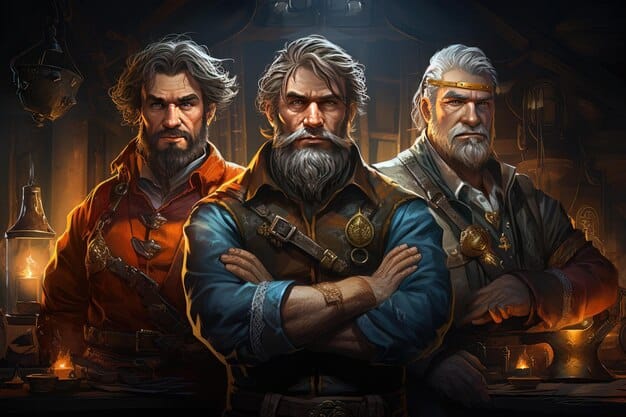
The Current Landscape of Champion Diversity
The current landscape of champion diversity within *League of Legends* is multifaceted, involving not only gender identities but also sexual orientations and romantic relationships.
- Gender Identity: Champions like Neeko are explicitly presented as genderfluid, allowing players to connect with characters who defy traditional binary classifications.
- Sexual Orientation: While not always explicitly stated in-game, lore and external content have confirmed the sexual orientations for several champions, such as Leona and Diana’s romantic connection.
- Romantic Relationships: The ongoing development of champion storylines allows for complex relationships to develop, providing a canvas for more nuanced character development reflecting a broader spectrum of experiences.
Acknowledging the importance of League of Legends Champion Genders and Sexualities: A Deep Dive into Representation in 2025, Riot Games is actively working to ensure these aspects are handled with sensitivity and respect, aligning the game’s portrayal of characters with the values of inclusivity.
Riot Games’ Stance on Inclusivity
Riot Games has publicly stated its commitment to creating a diverse and inclusive environment, both within the game and in its community. This commitment extends to champion design, narrative development, and community engagement.
The company has taken steps to address past criticisms regarding representation, actively seeking feedback from LGBTQ+ players and working with diversity consultants to ensure authenticity and sensitivity in its storytelling.
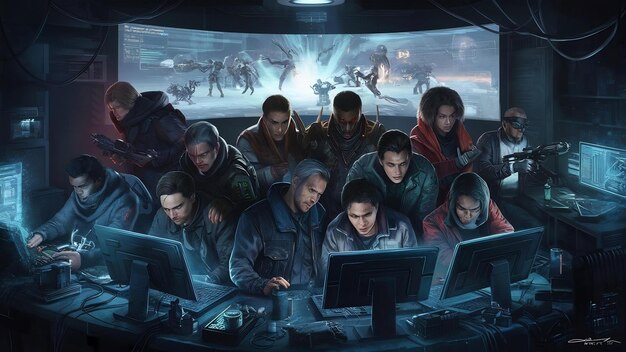
Actions and Initiatives
Riot Games has initiated several actions to foster inclusivity within League of Legends. Their dedication to diversity extends beyond mere words, illustrating their commitment to League of Legends Champion Genders and Sexualities: A Deep Dive into Representation in 2025.
- Consultation with Experts: By collaborating with diversity consultants, Riot ensures the authenticity and sensitivity of their storytelling.
- Community Engagement: Actively seeking feedback from LGBTQ+ players helps Riot align game portrayals with community values.
- Narrative Development: Ongoing attention to champion storylines allows for complex relationships to evolve, reflecting a broader spectrum of diverse experiences.
In summation, understanding *League of Legends* representation involves acknowledging Riot Games’ dedication to continuous improvement, paving the way for a more inclusive future.
Projecting Champion Representation in 2025
Looking ahead to 2025, we can anticipate further evolution in champion representation. As societal attitudes continue to shift, the demand for diverse and authentic characters in gaming will likely increase.
Riot Games is expected to introduce new champions with a wider range of gender identities and sexual orientations, potentially exploring narratives that delve deeper into LGBTQ+ themes. This could involve creating more explicit in-game relationships or developing stories that address issues faced by LGBTQ+ individuals.
Potential Developments
Several potential developments could shape the landscape of League of Legends Champion Genders and Sexualities: A Deep Dive into Representation in 2025.
- More Non-Binary Champions: Expect a rise in the number of champions explicitly identified as non-binary, providing different representation options.
- In-Game Relationship Visibility: Riot Games may include more visible romantic relationships within the game via storylines and interactions.
- Thematic Events: Special in-game events may focus on diversity, offering exclusive content and spotlighting different champions.
In a nutshell, the horizon appears promising for deeper, more meaningful character representation in *League of Legends*, signifying progress toward inclusivity.
The Impact of Representation on Players
Representation in gaming has a profound impact on players, particularly those from marginalized communities. Seeing characters who reflect their own identities can foster a sense of belonging and validation.
Diverse representation can also promote empathy and understanding among players from different backgrounds, breaking down stereotypes and fostering a more inclusive community. The presence of LGBTQ+ champions in League of Legends can help normalize diverse sexualities and gender identities, contributing to a more accepting gaming culture.
The increasing spotlight in League of Legends Champion Genders and Sexualities: A Deep Dive into Representation in 2025 isn’t just about characters; it’s about real-world impact and inclusivity.
Challenges and Criticisms
Despite the progress made, challenges and criticisms remain. Some players argue that focusing on diversity is “forced” or “unnecessary,” while others feel that representation is still superficial or tokenistic.
Balancing inclusivity with compelling character design and storytelling is a delicate task. Riot Games must navigate these challenges while staying true to its commitment to diversity and authenticity. Addressing criticisms with thoughtful, meaningful action is crucial.
Navigating Controversies
Navigating controversies around *League of Legends* demands thoughtful approaches and proactive communication.
- Authenticity Over Tokenism: Ensuring that portrayals of diverse characters are authentic and deeply rooted in their stories, not just superficial additions, is essential.
- Listening to Constructive Feedback: Engaging with community feedback, especially from marginalized groups, and incorporating their input into character development.
- Transparent Communication: Openly addressing concerns and controversies with clear, honest communication to build trust and demonstrate genuine commitment.
In short, tackling existing and incoming controversies around League of Legends Champion Genders and Sexualities: A Deep Dive into Representation in 2025 requires a strategic approach, fostering understanding and acceptance within the gaming community.
The Future of Inclusive Gaming
The future of inclusive gaming looks promising, with growing recognition of the importance of diverse representation. As technology advances and gaming becomes more accessible, the potential to create inclusive experiences for players from all backgrounds will continue to expand.
Riot Games, along with other game developers, has the opportunity to lead the way in creating a more inclusive gaming ecosystem. By embracing diversity, promoting empathy, and challenging stereotypes, the industry can help build a more welcoming and accepting world.
| Key Point | Brief Description |
|---|---|
| 🙋 Champion Diversity | Exploring diverse gender identities, sexual orientations, and romantic relationships in League of Legends. |
| 🏳️🌈 Riot’s Inclusivity | Riot Games’ commitment to creating a diverse and inclusive environment within the game and community. |
| 🔮 Future Trends | Anticipating new champions with wider ranges of gender identities and sexual orientations by 2025. |
| 🎮 Player Impact | Understanding how representation affects players, fostering belonging and breaking down stereotypes. |
Frequently Asked Questions
League of Legends includes champions with diverse gender identities and confirmed LGBTQ+ relationships. Riot Games continues to enhance the representation of League of Legends Champion Genders and Sexualities: A Deep Dive into Representation in 2025 through ongoing narrative development.
Riot Games has publicly committed to fostering a diverse and inclusive environment through champion design, narrative development, and active community engagement.
By 2025, expect more non-binary champions, visible in-game relationships, and thematic events focusing on diversity. These changes aim to improve representation in League of Legends Champion Genders and Sexualities: A Deep Dive into Representation in 2025.
Representation fosters a sense of belonging and validation for marginalized communities, while also promoting empathy and understanding among diverse players. This contributes to a more inclusive gaming community.
Challenges include balancing inclusivity with compelling character design, and avoiding tokenism. Riot Games must thoughtfully address criticisms and ensure that representations are authentic and meaningful for League of Legends Champion Genders and Sexualities: A Deep Dive into Representation in 2025.
Conclusion
League of Legends Champion Genders and Sexualities: A Deep Dive into Representation in 2025 reveals significant progress in inclusivity, signaling a positive shift in gaming. As Riot Games and other developers continue prioritizing diverse representation, the future of inclusive gaming looks increasingly promising.
By embracing diversity and challenging stereotypes, the industry can help build a more welcoming and accepting world, reflecting the experiences and identities of a broad player base.
